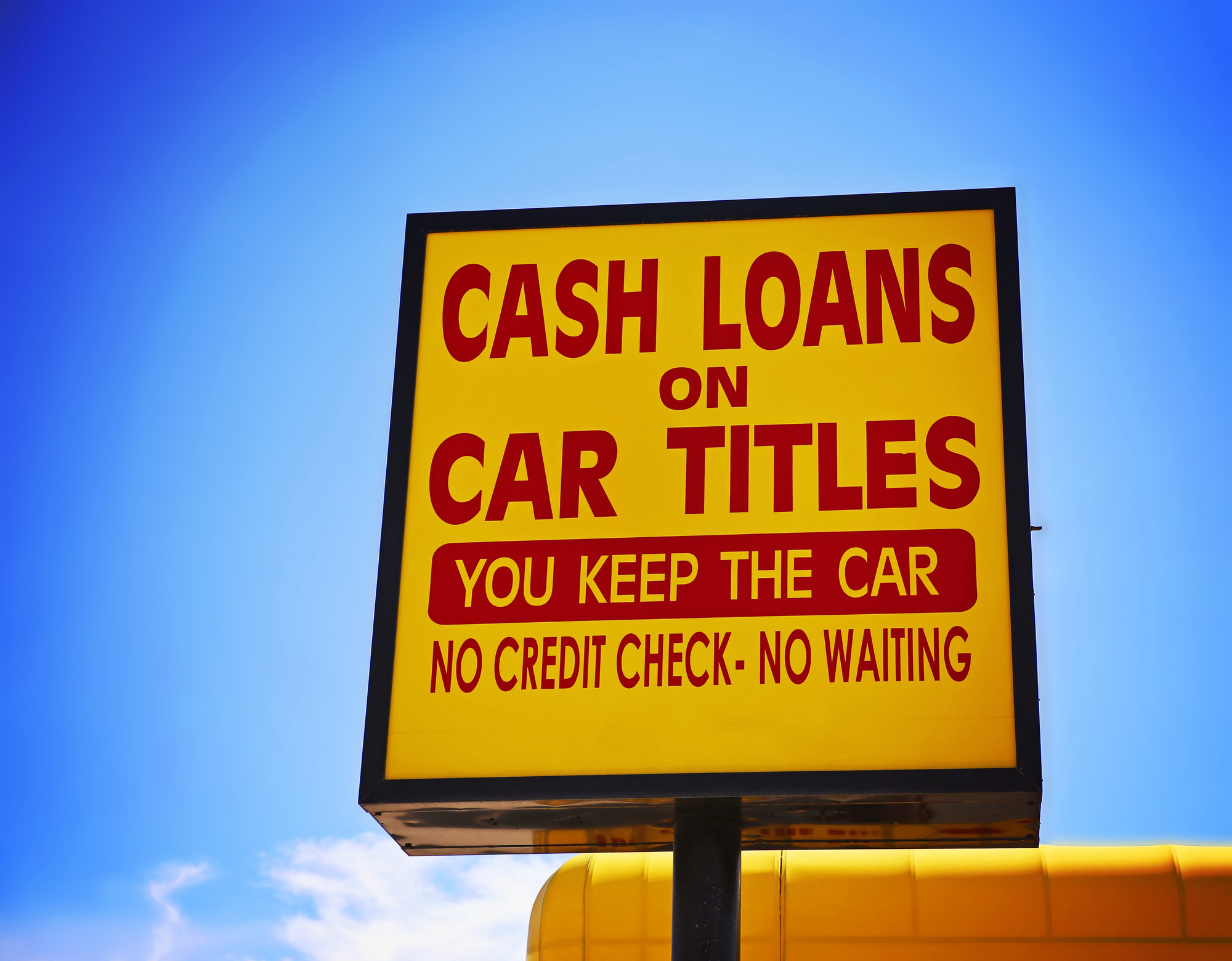
a cash loan or car title loan sign in the summer time toned with a retro vintage instagram filter app or action effect
Your car is a lucrative asset that comes in handy when you’re strapped for cash. Title loans are a means to an end when you are in a financial bind and can’t qualify for a personal loan with a bank.
But if you’re thinking about getting a title loan you may not fully understand how they work. Continue reading the information in this article to learn more about the ins and outs of title loans.
How Do Title Loans Work?
Title loans work best for people who own their vehicles. Most loan lenders require that the vehicle owner not have any excessive debt on the car that’s owed to a bank or another financial institution.
Generally, you can get 25 to 50% of the value of your car. Once the car title lender has approved the loan, you have to give them the title to your vehicle. You are able to continue driving the car, but some car title loan providers install a GPS tracker to keep tabs on the vehicle.
They may also make a copy of your keys. Doing these steps are a way for the lender to take the car if you default on the loan. The loan terms are usually 15 to 30 days, but can sometimes last up to a full year.
In addition to title loans for cars, did you know you can also do the same for your motorcycle? Follow the highlighted link to learn more about motorcycle title loans.
Title Loan Benefits
The biggest perk to title loans is that they are relatively easy to obtain as long as you own a vehicle. Unlike bank loans or even payday loans, your approval isn’t always based heavily on your credit or income.
Your car is the primary asset that’s used as a bargaining chip to get you the loan. The lenders know that if you default, then your car belongs to them. It provides car title loan providers much more of an advantage if you default.
The Drawback of Title Loans
As you may know, anytime you borrow money there is a downside to it. Here are some of the disadvantages of a title loan:
They’re Expensive
Title loans are not cheap. They generally cost a lot and the annual interest rate is approximately 300%—which converts to about 25% each month.
Let’s say, you borrow $1,000 with a 30-day interest rate of 25%. That means you’ll have to repay $1,250 at the end of the 30-day term, and that excludes any other added fees that may get tacked on.
So if you choose this route, just know you’ll have to pay back much more than you borrow.
Debt
Speaking of an expensive loan, getting title loans creates an ugly cycle of debt. If you can’t pay the loan amount back in full, the lender may allow you to roll over the debt into a new loan with added fees and interest.
The fees can add up really quickly. Before you know it, you could owe an additional $500 or more within 60 days. A situation like this can get really ugly and really expensive. After a while, you may even realize that you don’t have the means to pay the loan back.
Unfortunately, that creates an even bigger problem.
Car Repossession
Title loans are a slippery slope and should only be used in dire emergency situations in which you are certain that you can pay the loan back. Unlike other loans, if you default on a title loan the repercussions are substantial.
Without your vehicle, things could get pretty hectic for you. You may not have a way to work to pay your other bills. Or you’ll put yourself in a position to dish out more money by paying for a new car in the future.
And what’s worse is that even if you make partial payments, if you can’t follow the loan agreement terms set out in your contract with the lender, they have the right to repossess your car. So you could potentially pay them back a lot of money and still lose your vehicle.
Alternative Options
Instead of going through the title loan hassle, use other alternatives. If you have a credit card, use it. Although credit cards could turn into debt as well, the interest rates are significantly lower than those of title loans. Plus, if you default on your credit card payments, you won’t lose your car.
An unsecured personal loan doesn’t need as big of an asset such as your car. It too has lower interest rates. Also, before making a rushed decision to get a title loan, think about what else you could do to cover your situation.
For instance, if your rent is $1,000 and you can’t pay for the month, talk to your landlord. Chances are, they may be willing to allow you to pay a fee of $100 that’s added to the rent amount. Although it may not feel good to pay your rent late, the fee that the property manager charges will be much less than what you give the car title lender.
Are Title Loans a Good Option for You?
Title loans are a useful option when you’re tight on cash. However, if you decide to get one, just make sure that you are making a wise, informed decision. You don’t want to regret your decision later down the line.
The biggest risk of title loans is that you lose your car and have additional debt. So choose wisely!
If this information was helpful take a look at more of our website. We publish tons of content to help inform and educate our readers. We’re sure you’ll find more enjoyable articles to read.
Leave a Reply